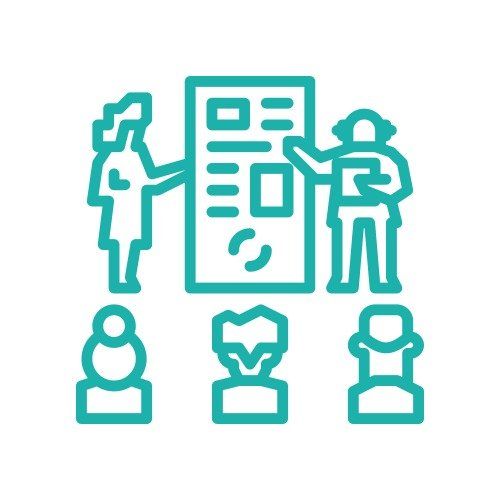Sponsor a TNVR
A donation of $40 covers the cost of spaying/neutering and vaccinations for a community cat. Your support directly contributes to the well-being of these cats and helps reduce overpopulation.
Help Us Help Them Improve the Lives of Community Cats
Community cats, also known as feral or unowned cats, often struggle for survival in urban environments. They face harsh conditions, lack of food, and limited shelter. This blog post introduces the TNVR (Trap-Neuter-Vaccinate-Return) program, a compassionate and effective solution that addresses the issue of community cats. By understanding the TNVR program, you'll discover how you can make a significant difference in the lives of these cats and improve your community's quality of life.
Understanding Community Cats
Community cats are feral or socialized cats that live outdoors without permanent homes. These cats are often the descendants of unspayed and unneutered stray cats. They breed prolifically, leading to large populations with very low survival rates for kittens. This results in a cycle of suffering and hardship for the cats and poses a challenge for those who want to help them.
Many people assume that if they ignore these cats or stop feeding them, the cats will simply disappear. However, these cats stay in their established territories, continuing to reproduce and struggle. It's essential to recognize that this is a human-created problem that requires a human solution.
The TNVR Program Explained
The TNVR program stands for Trap-Neuter-Vaccinate-Return. It is a humane and effective method of managing and reducing the population of community cats. Here's how TNVR works:
- Trap: Community cats are humanely trapped using specialized traps provided by organizations like APN (Animal Protection Network).
- Neuter: The captured cats are transported to veterinary clinics, where they are spayed or neutered to prevent further breeding.
- Vaccinate: The cats receive essential vaccinations, including rabies shots, to protect them and the community.
- Return: After recovery, the neutered and vaccinated cats are returned to their original outdoor homes, where they can live healthier lives without contributing to overpopulation.
Benefits of the TNVR Program
Implementing the TNVR program offers numerous benefits for both the cats and the community:
- Reduction in Overpopulation:
- Neutering community cats prevents further breeding, gradually reducing the overall population.
- Fewer cats mean fewer resources needed for their care and management.
- Improved Health and Well-being:
- Vaccinated and neutered cats are healthier and less likely to suffer from diseases and infections.
- TNVR ensures that only healthy cats are returned to the community, reducing the spread of illnesses.
- Better Quality of Life for Cats:
- TNVR cats are less likely to engage in harmful behaviors such as fighting and roaming.
- They have more stable lives in their familiar territories.
- Enhanced Community Relationships:
- TNVR fosters cooperation between animal organizations, local governments, and residents.
- It creates a sense of responsibility and care within the community.
- How TNVR Works in Practice
- Setting Up Traps
- APN loans humane traps to caregivers at no cost. These traps are easy to use and ensure the safety of the cats during capture. Caregivers receive guidance on the best practices for trapping, including the right times and locations to set the traps.
- Transporting the Cats
- Once trapped, the cats are transported to veterinary clinics for neutering and vaccination. APN coordinates with local vets to provide these services efficiently and humanely.
- Veterinary Care
- At the clinic, each cat undergoes a thorough health check. Any medical issues, such as abscesses or infections, are treated before the cat is released back into the community. Cats that test positive for feline leukemia, a highly contagious and fatal virus, receive special care and may be placed in long-term shelters.
- Returning the Cats
- After recovery, the neutered and vaccinated cats are returned to their original locations. An ear tip is removed during surgery to identify them as part of the TNVR program. This helps caregivers and volunteers monitor the cats' health and ensure they receive ongoing care.
- The Role of Caregivers
- Caregivers play a crucial role in the success of the TNVR program. They provide food, water, and shelter for the cats and monitor their health. APN offers training and resources to help caregivers feed the cats responsibly, avoiding wildlife attraction. Caregivers are encouraged to report any health issues to APN, which can provide drop traps for capturing cats that need further veterinary care.
- Dispelling Myths About Community Cats
- There are many misconceptions about community cats and their impact on neighborhoods. These misconceptions often lead to misguided attempts to address the issue. Here are some common myths debunked:
- Myth: If you stop feeding community cats, they will go away.
- Reality: Cats are territorial animals and will remain in their established areas regardless of food availability. Instead of disappearing, they suffer from malnutrition and poor health.
- Myth: Removing community cats will solve the problem.
- Reality: Removing cats creates a vacuum effect, where new cats move into the area and start breeding. TNVR stabilizes the population and prevents new cats from moving in.
- Myth: Community cats spread diseases to humans.
- Reality: TNVR includes vaccinations, reducing the risk of disease transmission. Healthy, neutered cats are less likely to engage in behaviors that spread diseases.
- How You Can Help
- The success of the TNVR program relies on community support and involvement. Here are some ways you can help:
- Sponsor a TNVR:
- A donation of $40 covers the cost of spaying/neutering and vaccinations for a community cat. Your support directly contributes to the well-being of these cats and helps reduce overpopulation.
- Volunteer:
- Join local animal organizations and participate in trapping, transporting, and caring for community cats. Your time and effort make a significant difference.
- Educate Others:
- Spread the word about the benefits of TNVR and the importance of humane treatment for community cats. Educating others helps dispel myths and garner support for the program.
The TNVR program is a compassionate and effective solution to the issue of community cats. By addressing overpopulation and improving the health of these cats, TNVR creates a better quality of life for both cats and humans. Your support and involvement are crucial in making this program a success. Consider sponsoring a TNVR, volunteering, or simply spreading awareness about the benefits of this humane approach.
- Together, we can make a difference and improve the lives of countless community cats. To learn more about the TNVR program and how you can get involved, visit our website and join the cause today.




